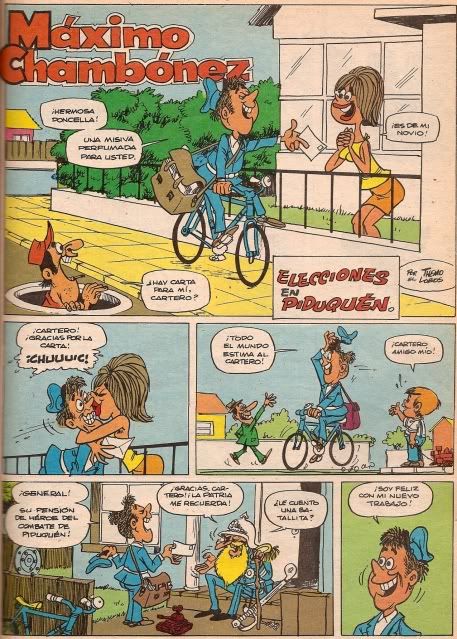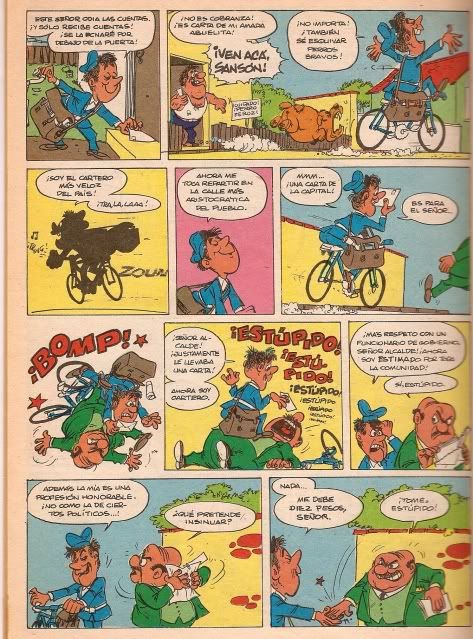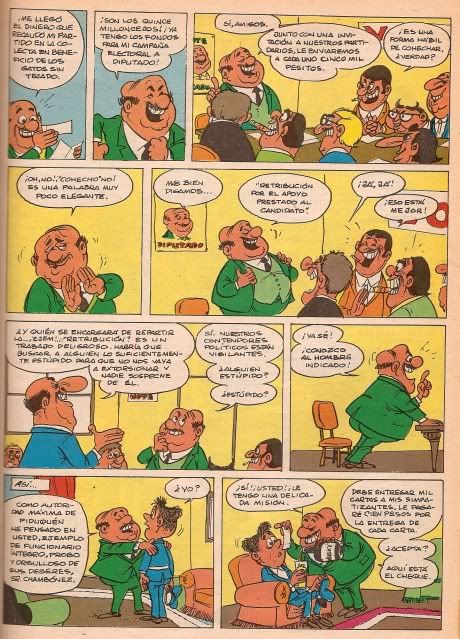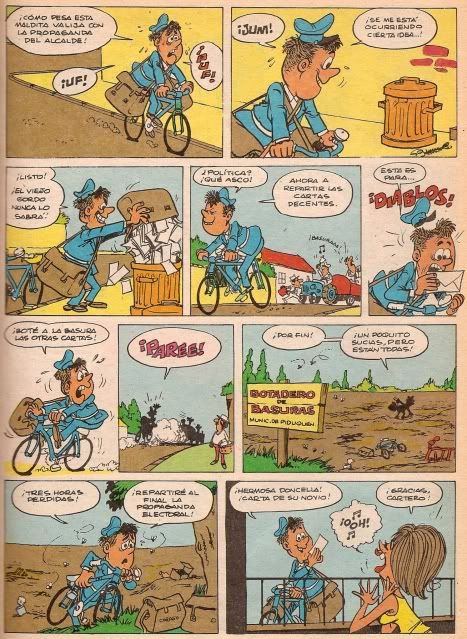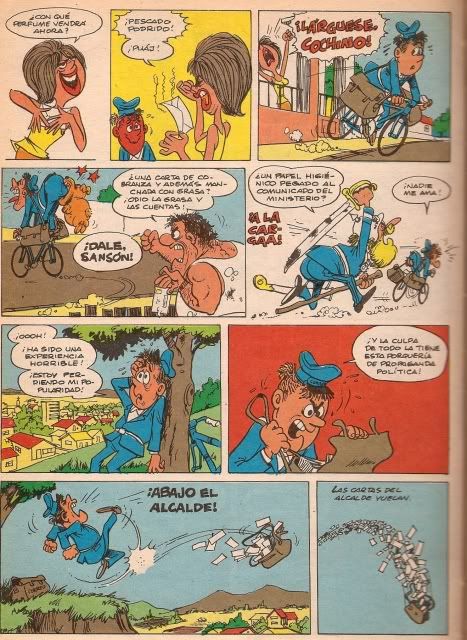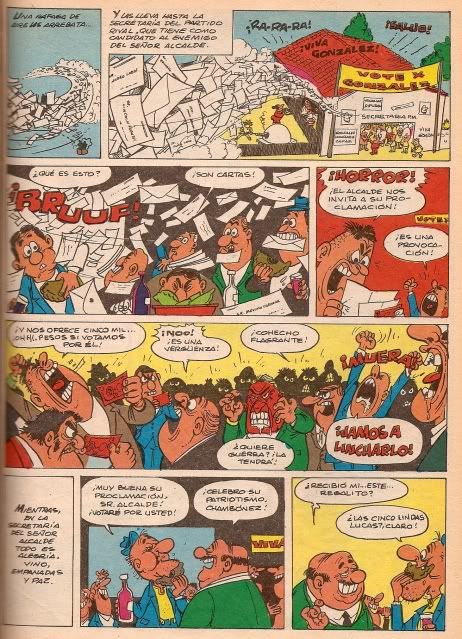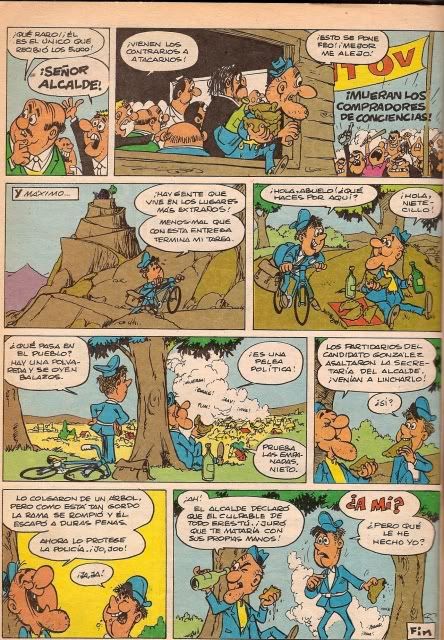For my Top 10 Books, I will take each work out of my bookshelf, open it at random and type up one paragraph from whichever moment in the book I happen to open it at. I read four of the books on this list in Spanish, so I will transcribe the texts in the original language. This list consitst of short story collections in addition to novels. I will also detail what language the book was written in, what country it is from and what year it was written in.
For my top 10 films, I will open up a Google image search and pick one still from a film that I feel captures the zest and vitality of it. I will detail the language it is spoken in, what country produced it and the year it was released.
Here goes....
Language: English
Country: Ireland
Year: 1917
And while the friends were still standing in tears by the bedside the soul of the sinner was judged. At the last moment of consciousness the whole earthly life passed before the vision of the soul and, ere it had time to reflect, the body had died and the soul stood terrified before the judgement seat. God, who had long been merciful, would then be just. He had long been patient, pleading with the sinful soul, giving it time to repent, sparing it yet awhile. But that time had gone. Time was to sin and to enjoy, time was to scoff at God and at the warnings of His holy church, time was to defy His majesty, to disobey His commands, to hoodwink one's fellowmen, to commit sin after sin and to hide one's corruption from the sight of men. But that time was over. Now it was God's turn: and He was not to be hoodwinked or deceived. Every sin would then come forth from its lurkingplace, the most rebellious against the divine will and the most degrading to our poor corrupt nature, the tiniest imperfection and the most heinous atrocity. What did it avail then to have been a great emperor, a great general, a marvellous inventor the most learned of the learned? All were as one before the judgment seat of God. He would reward the good and punish the wicked. One single instant was enough for the trial of a man's soul. One single instant after the body's death, the soul had been weighed in the balance. The particular judgment was over and the soul had passed to the abode of bliss or to the prison of purgatory or had been hurled howling into hell.
#9 La vida breve (A Brief Life) - Juan Carlos Onetti
Language: Spanish
Country: Uruguay
Year: 1950
Me aparté y retrodecí; recordé que habíá alguien al otro lado de la pared, admití el deber de llamarlo para que viera lo que yo habíá mirado. "Ellos" ya no estaban; habían ocupado totalmente el cuerpo de la Queca en el momento decisivo, gotearon como un sudor después de la muerte, se disolvían ahora mezclados al polvo y la pelusa de los rincones. Pero el aire de la habitación, la libertad y la inocencia, se alzaban como un vapor en el alba, alegres y silenciosos reconocían la forma de mi rostro.
#8 The Unlimited Dream Company - J. G. Ballard
Language: English
Country: United Kingdom
Year: 1979
Later, while I rested in my bedroom above the river, I thought of my third vision that afternoon, of my lordships of the deer. Although I had not eaten for three days I felt gorged and pregnant, not by some false womb in my belly, but by a true pregnancy in which every cell of my flesh, every gland and nerve in my brain, every bone and muscle, was swelling with new life. The thousands of fish crowding the dark water, the lantern-like plumage of the birds in the park also seemed gorged, as if we were all taking part in an invisible reproductive orgy. I felt that we had abandoned our genital organs and were merging together, cell to cell, in the body of the night.
#7 The New York Trilogy - Paul Auster
Language: English
Country: United States
Year: 1987
Unfortunately, the woman's back is turned to Blue, so he can't watch her face as the meal progresses. As he sits there eating his Salisbury steak, he thinks that maybe his first hunch was the right one, that it's a marriage case after all. Blue is already imagining the kind of things he will write in his next report, and it gives him pleasure to contemplate the phrases he will use to describe what he is seeing now. By having another person in the case, he knows that certain decisions have to be made. For example: should he stick with Black or divert his attention to the woman? This could possibly accelerate matters a bit, but at the same time it could mean that Black could be given the chance to slip away from him, perhaps for good. In other words, is the meeting with the woman a smoke-screen or the real thing? Is it a part of the case or not, is it an essential or contingent fact. Blue ponders these questions for a while and concludes that it's too early to tell. Yes, it could be one thing, he tells himself. But it also could be another.
#6 Pedro Páramo - Juan Rulfo
Language: Spanish
Country: Mexico
Year: 1955
"Mi cuerpo se sentía a gusto sobre el calor de la arena. Tenía los ojos cerrados, los brazos abiertos, desdobladas las piernas a la brisa del mar. Y el mar allí enfrente, lejano, dejando apenas restos de espuma en mis pies al subir de la marea..."
- Ahora sí es ella la que habla, Juan Preciado. No se te olvide lo que dice.
"Era temprano. El mar corríá y bajaba en olas. Se desprendía de su espuma y se iba, limpio, con su agua verde, en ondas calladas.
"- En el mar sólo me sé banar desnuda -le dije. Y el me siguió el primer día, desnudo también, fosforescente al salir del mar. No había gaviotas; soló esos pájaros que les dicen 'picos feos', que grunen como si roncaran y que después de que sale el sol desaparecen. Él me siguió el primer díá y se sintió solo, a pesar de estar allí.
"- Es como si fueras un 'pico feo, uno más entre todos -me dijo-. Me gustas más en las noches, cuando estamos los dos en la misma almohada, bajo las sábanas, en la oscuridad.
"Y se fue.
"Volví yo. Volvería siempre. El mar moja mis tobillos y se va; moja mis rodillas, mis muslos; rodea mi cintura con su brazo suave, da vuelta sobre mis senos; se abraza de mi cuello; aprieta mis hombros. Entonces me hundo en él, entera. Me entrego a él en su fuerte batir, en su suave poseer, sin dejar pedazo.
"- Me gusta banarme en el mar - le dije.
"Pero él no le comprende.
"Y al otro día estaba otra vez en el mar, purificándose. Entregándome a sus olas."
#5 Crime and Punishment - Fyodor Dostoyevsky
Language: Russian
Country: Russia
Year: 1866
As for Raskolnikov, during all this time he lay on his back, not saying a word, staring intently, though without any reason that was particularly apparent, at the man who had come in. His face, which he had now turned away from the interesting flower on the wallpaper, was extremely pale and displayed an expression of uncommon suffering, as though he had just undergone a painful operation or had, only a moment ago, been released from torture. Gradually, however, the newly arrived gentleman began to occupy more and more of his attention; this state of attention changed to bewilderment, then suspicion and fianlly something that resembled fear. Indeed, when Zosimov, pointing at him, said 'This is Raskolnikov,' he suddenly roused himself in a hurry, leapt upright, sat on the edge of the sofa and in a voice which was almost challenging, but none the less faint and broken, articulated:
#4 Bestiario (Bestiary) - Julio Cortázar
Language: Spanish
Country: Argentina
Year: 1951
De noche no es tanto, nos ayudan la fatiga y el silencio - porque el rondar de las macuspias escande dulcemente este silencio de la pampa - y a veces dormimos hasta el amanecer y nos despierta un esperanzado sentimiento de mejoríá. Si uno de nosotros salta de la cama antes que el otro, puede ocurrir con todo que asistamos consternados a la repetición de fenómeno Camphora monobromata, pues cree que marcha en una dirección cuando en realidad lo está haciendo en la opuesta. Es terrible, vamos con toda seguridad hacia el bano, y de improviso sentimos en la cara la piel desnuda del espejo alto. Casi siempre lo tomamos de broma, porque hay que pensar en el trabajo que espera y de nada serviría desanimarnos tan pronto. Se buscan los glóbulos, se cumplen sin comentaris ni desalientos las instrucciones del doctor Harbin. (Tal vez en secreto seamos un poco Natrum muriaticum. Tipicamente, un natrum llora, pero nadie debe observarlo. Es triste, es reservado; le gusta la sal).
#3 The Trial - Franz Kafka
Language: German
Country: Check Republic
Year: 1925
But this was not so. The priest examined the lamp instead, turned it up a bit, then turned slowly towards the balaustrade and gripped the squared edge in front with both hands. He stood like this for some time and looked round without moving his head. K. had retreated a considerable distance and was leaning on his elbow against the front row of pews. Dimly he could see somewhere, without being able to tell exactly where, the hunched back of the verger crouching peacefully as if conscious of a task accomplished. What silence in the cathedral now! But K. would have to break it; he had no intention of staying here. If it was the priest's duty to preach at a specified time without regard to circumstances, he could do so. It could be managed without K.'s support, just as K.'s presence would certainly not heighten the effect. So K. slowly put himself in motion, sidled along the pew on tiptoe, came to the centre aisle and walked along without hindrance, disturbed only by the ringing of his cautios steps on the stone floor and by the echo sounding faintly but continuously in regular multiple progression round the vaulted roof. K. felt a little exposed as he walked alone between the empty pews, perhaps observed by the priest; and the church seemed to him to border on the very limits of what was humanly endurable. When he reached the place where he had been sitting he did not stop but snatched at the album he had left there and picked it up. He had almost left the pew area and was almost approaching the open space between this and the entrance doors when he heard the priest's voice for the first time. A powerful, practised voice. How it pierced the expectant cathedral! But it was not directed at a congregation. It was unambiguous and there was no escape; he was calling 'Joseph K.!'
#2 Ficciones (Fictions) - Jorge Luis Borges
Language: Spanish
Country: Argentina
Year: 1944
Debo esa vanidad casi atroz a una institución que otras republicas ignoran o que obra en ellas de un modo imperfecto y secreto: la lotería. No he indagado su historia; sé que los magos no logran ponerse de acuerdo; sé de sus poderosos propósitos lo que puede saber de la luna el hombre no versadio en astrología. Soy de un país vertiginoso donde la lotería es parte principal de la realidad: hasta el día de hoy, he pensado tan poco en ella como la conducta de los dioses indescifrables o de mi corazón. Ahora, lejos de Babilonia y de sus queridas costrumbres, pienso con algún asombro en la lotería y en las conjeturas blasfemas que en el crepúsculo murmuran los hombres velados.
#1 The Sound and the Fury - William Faulkner
Language: English
Country: United States
Year: 1929
I laid out two suits of underwear, with socks, shirts, collars and ties, and placed my trunk. I put in everything except my new suit and an old one and two pairs of shoes and two hats, and my books. I carried the books into the sitting-room and stacked them onto the table, the ones I had brought from home and the ones Father said it used to be a gentleman was known by his books; nowadays he is known by the ones he had not returned and locked the trunk and addressed it. The quarter hour sounded. I stopped and listened to it until the chimes ceased.
5 Runners-up: Lolita by Vladimir Nabokov; Gravity's Rainbow by Thomas Pynchon; Absalom, Absalom! by William Faulkner; Hopscotch by Julio Cortázar; The Obscene Bird of Night by José Donoso.
Language: Russian
Country: Russia
Year: 1966
 #9 The Producers - Mel Brooks
#9 The Producers - Mel BrooksLanguage: English
Country: United States
Year: 1968
 #8 The Second Heimat - Edgar Reitz
#8 The Second Heimat - Edgar ReitzLanguage: German
Country: Germany
Year: 1992
 #7 The Big Lebowski - Coen Brothers
#7 The Big Lebowski - Coen BrothersLanguage: English
Country: United States
Year: 1998
 #6 The Seventh Seal - Ingmar Bergman
#6 The Seventh Seal - Ingmar BergmanLanguage: Swedish
Country: Sweden
Year: 1957
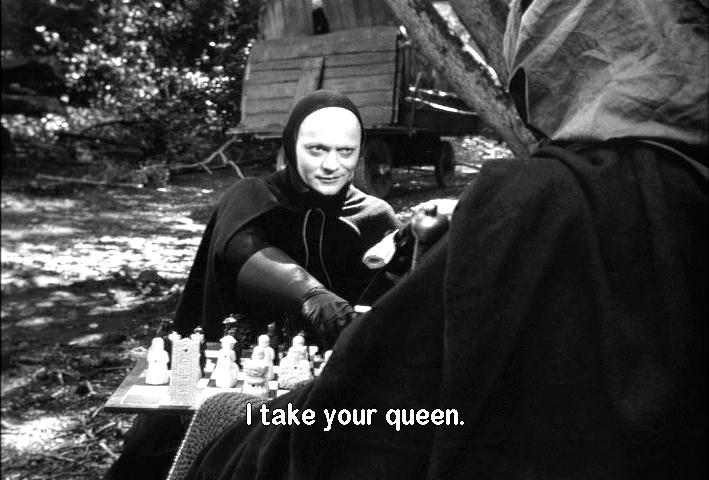 #5 A Man Escaped - Robert Bresson
#5 A Man Escaped - Robert BressonLanguage: French
Country: France
Year: 1956
 #4 Aguirre, the Wrath of God - Werner Herzog
#4 Aguirre, the Wrath of God - Werner HerzogLanguage: English
Country: Germany
Year: 1971
 #3 Alphaville - Jean-Luc Godard
#3 Alphaville - Jean-Luc GodardLanguage: French
Country: France
Year: 1965
 #2 Blue Velvet - David Lynch
#2 Blue Velvet - David LynchLanguage: English
Country: United States
Year: 1986
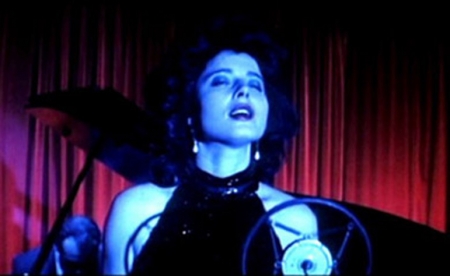 #1 2001: a Space Odyssey - Stanley Kubrick
#1 2001: a Space Odyssey - Stanley KubrickLanguage: English
Country: United States
Year: 1969

5 Runners-up: The Passion of Joan of Arc by Carl Theodor Dreyer; Dr. Strangelove by Stanley Kubrick; La grand illusion by Jean Renoir; Bicycle Theives by Vittorio De Sica; Metropolis by Fritz Lang.
